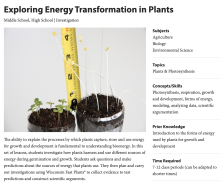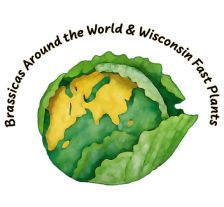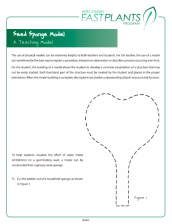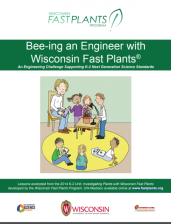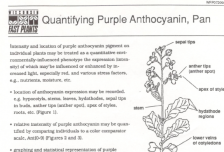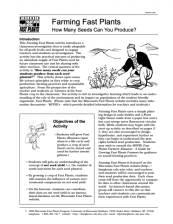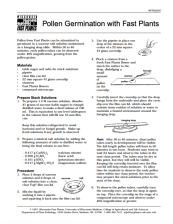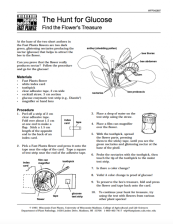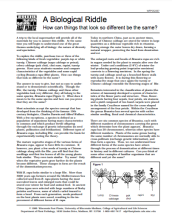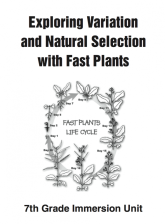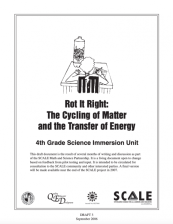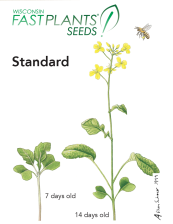Browse Resources
Resources | |
|---|---|
In this set of lessons and Fast Plants experiment, students investigate how plants harness and use different sources of energy during germination and growth. Students ask questions and make predictions about the sources of energy that plants use. They then plan and carry out investigations using...
This investigation begins with a phenomenon that is evidenced in most every produce aisle: Many of the vegetables that botanists classify as Brassica look and taste different. This investigation aligns with middle and high school Next Generation Science Standards as well as with agricultural science...
This 2-page handout gives instructions for making the seed sponge model that was developed by the Wisconsin Fast Plants Program as a tool for learning about germination. Visualizing what is inside a seed and how those structures function during germination is modeled, using a simple kitchen sponge....
Download this complete set of lessons for an elementary, NGSS-aligned inquiry that foregrounds engineering practices. During the days that are supported by this investigation, students observe flowers on their 14 to 16 day old Fast Plants along with bee structures, learning to connect how the shape...
This PDF resource depicts the locations on rapid cycling Brassica rapa where anthocyanin expression is commonly seen. Ways of roughly estimating the relative intensity of purple anthocyanin expression are also presented.
This Farming Fast Plants activity introduces a classroom investigation that is easily adaptable for all grade levels and designed to engage teachers and students as investigators. The activity has the practical outcome of producing an abundant supply of Fast Plants seed for future classroom use and...
Protocol for germinating Fast Plants pollen in a sucrose-salt solution
Background information and activity investigating the Fast Plant nectaries and their functions.
Turnips, Chinese cabbage and Wisconsin Fast Plants (Rbr) look very different. Yet, they actually belong to the same species. This means that they have the same number of chromosomes and they can cross breed and produce fertile offspring. But how can you prove that plants that look so different are...
Download this complete and coherently designed, middle school level unit to teach fundamental concepts that underpin the theory of evolution. The unit was collaboratively designed by teachers, college faculty & staff, and the Fast Plants Program at UW-Madison to support student-centered...
This Immersion Unit provides a coherent series of lessons designed to guide students in developing deep conceptual understanding that is aligned with the National standards, key science concepts, and essential features of classroom inquiry (as defined by the National Science Education Standards)....
This is a page on the Fast Plants website, describing the Standard variety of Wisconsin Fast Plants (Brassica rapa). This page includes suggestions for investigations and teaching applications using this seed variety, including use as a model organism to teach about the plant life cycle and plant...
| |
